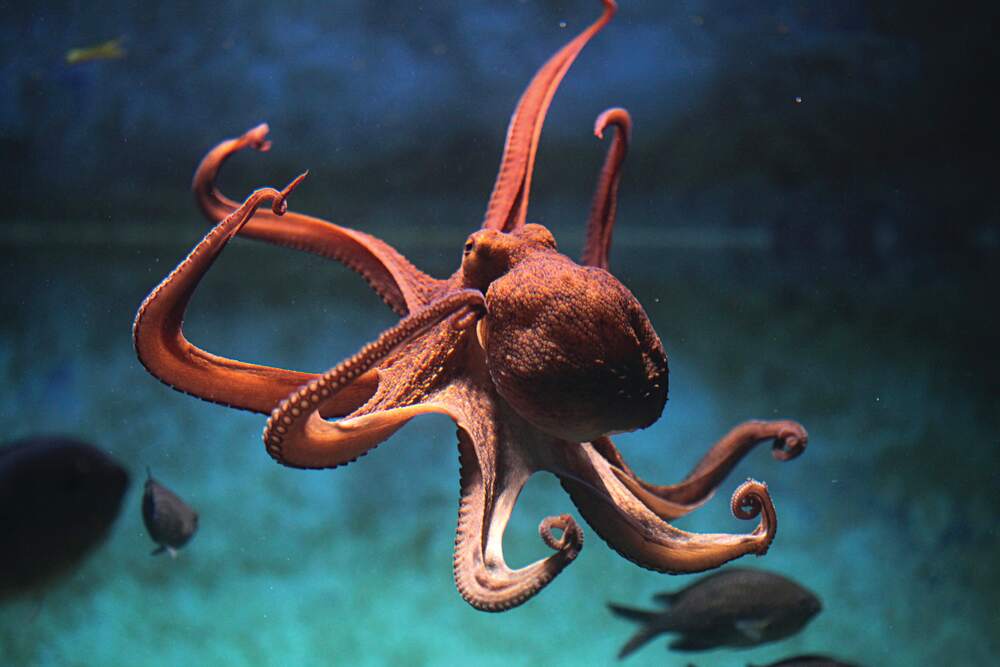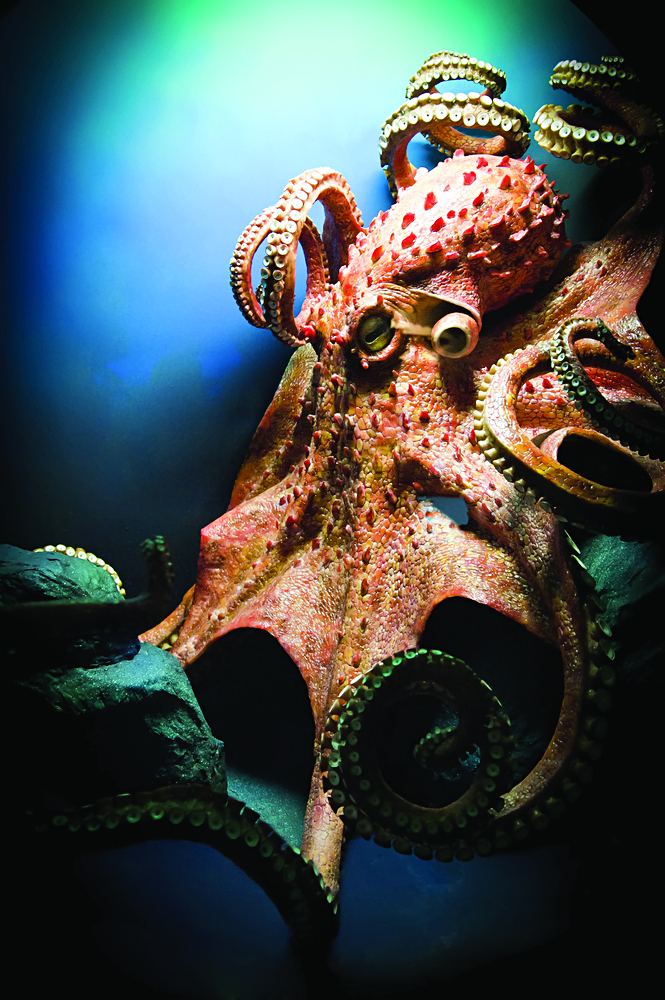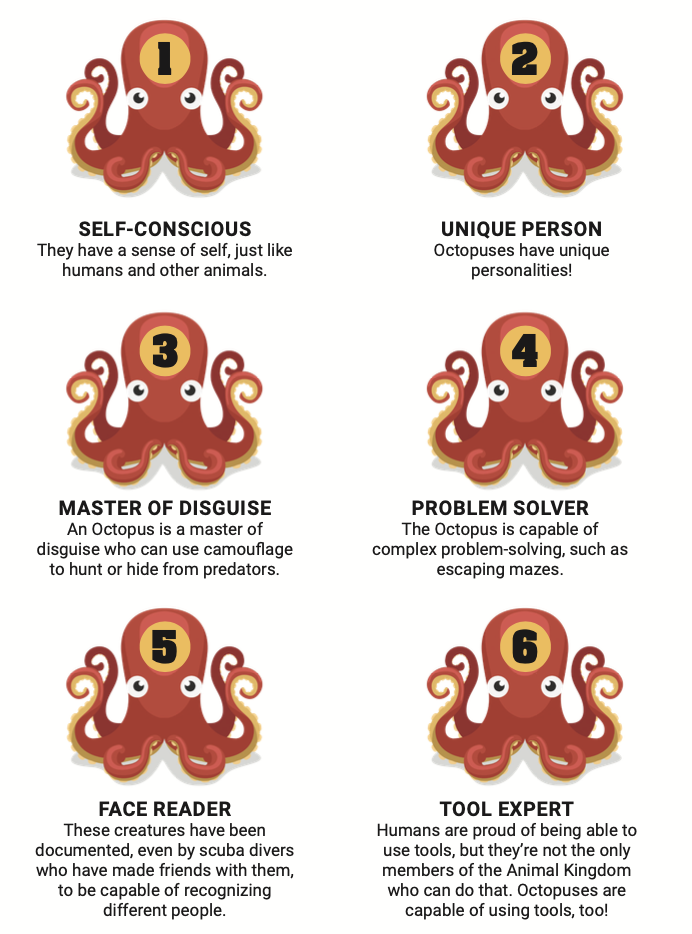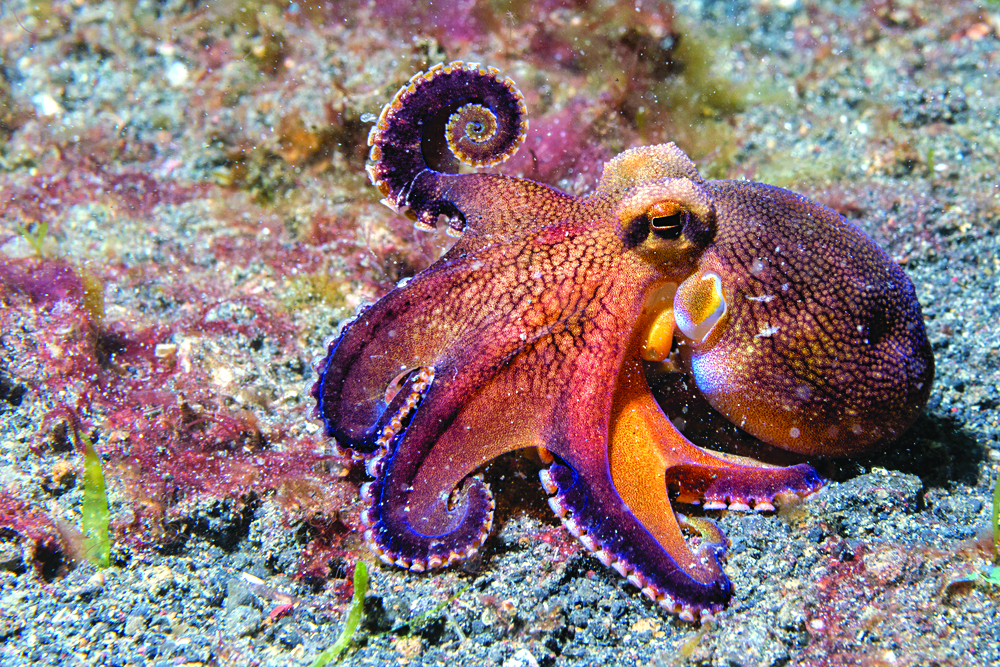There are about 300 known species of Octopuses that you can find in oceans all over the world. They are intelligent creatures who are capable of changing their colors and textures to match their environment.
Let’s find out what goes on in the minds of Octopuses.
HOUDINI AS AN OCTOPUS
An Octopus named Inky, who lives in the National Aquarium in New Zealand, is a natural escape artist: He used to slip out of his tank, go down a drain pipe, and escape to the open water.

THE OCTOPUS’ NERVOUS SYSTEM
Octopuses are smart and unique creatures who happen to be full of surprises. You might think that the Octopus is just like any animal with a single brain that controls everything else. But, its distinctive body structure with eight long and flexible arms would make a single nervous system inefficient in processing motor and sensory information necessary for their natural behavior and survival. As a result, the nervous system of an Octopus is spread out into three main parts: the brain, the optic lobes, and the arm nervous system, as explained by Carls-Diamante Sidney in a 2022 article published in the journal Frontiers in Systems Neuroscience.
According to Dr. Binyamin Hochner in a 2012 article published in the journal Current Biology, the Octopus’ nervous system is “highly distributed, and typically divided along anatomical lines into components with considerable functional autonomy.”
The arm nervous system contains most of the neurons of an Octopus, making them highly sensitive and flexible at the same time. When the Octopus is exposed to stimuli, the arm nervous system mostly processes the information as the Octopus decides what to do.
The rest of the nervous system is responsible for learning and processing sensory information.
BRAINS AND HEARTS
Octopuses are known for being brainy — and then they also have three hearts.
NO COLORS, NO PROBLEM

Another unique characteristic of Octopuses is that they are thought to be colorblind but are still able to blend in their environment accurately with the help of their arm nervous system, according to Lisa Hendry from National History Museum. The nervous system of the Octopus can work individually or together to ensure survival with superb decision-making and problem-solving skills, especially in difficult or dangerous situations.
How did scientists and researchers find out about the exceptional intelligence of the Octopus?
During various animal encounters, Octopuses have always displayed unique characteristics and complex behaviors that were not frequently observed in any other Invertebrates. It is commonly thought that Invertebrates are a lot less intelligent than Mammals because they are less complex beings, but the Octopuses proved that their intelligence can be at par with some of the most intelligent Mammals on the planet.
OCTOPUSES DOMAIN-GENERAL COGNITION
According to the American Psychological Association, domain-general cognition is considered as intelligence or speed of information processing that influences performance in various tasks and situations. In the case of Octopuses, their intelligence is the key to their survival as observed by scientists.
Professor Jennifer Mather wrote in a 2019 article for Animal Sentience that the actions of Octopuses can be domain-general, with flexible problem-solving strategies, enabling them to survive “by their wits” in a challenging and variable environment.
INVERTEBRATE INTELLECTUALS
Here are the most notable observations that prove how Octopuses are highly intelligent.

BLUE-BLOODED
Some Octopuses have so much copper in their blood that it turns into a blue color. Talk about royalty!

CONCLUSION
Octopuses are unique and intelligent creatures with a complex nervous system. This gives them an edge, especially in their natural habitat, because they can learn quickly and adjust to their new environment.
Intelligent or not, Octopuses deserve to be respected, as they have every right to live and enjoy their sentience.






